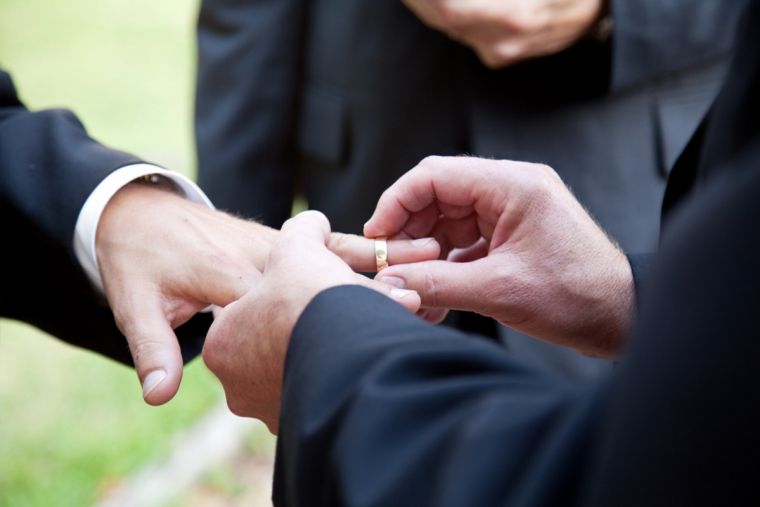What a same-sex marriage vote reveals about the Anglican Church of Australia

The General Synod of the Anglican Church of Australia met for the first time in five years this week. It was also the first Synod to be held since same-sex marriage was legalised in Australia. The Synod revealed a number of things about what is happening in the Australian Church.
The largest diocese is in New South Wales where Sydney Anglicans are almost uniformly biblical Christians, and there are growing numbers of evangelicals in other dioceses. However, there are others in positions of power in areas such as Brisbane and Perth who would be styled as 'progressives'.
The Synod was much anticipated in the secular press, who tended to frame it as conservative Christians vs moderate progressives. The headline in one of the main papers during the Synod cried "Conservatives crushed in same-sex marriage Anglican vote". On a casual reading, that would imply that the liberals won, but the real story is very different.
The Archbishop of Sydney, Kanishka Raffel, brought this motion to the Synod: "The solemnisation of a marriage between a same-sex couple is contrary to the teaching of Christ and the faith, ritual, ceremonial and/or discipline of this Church.
"Any rite or ceremony that purports to bless a same-sex marriage is not in accordance with the teaching of Christ and the faith, ritual, ceremonial and/or discipline of this Church."
This is the position of the Anglican Church; it should not have been difficult to affirm. The early signs were good. There were a number of amendments in support of same-sex marriage - all defeated by roughly the same number - 90 to 150. But then came the masterstroke of the liberals. Instead of a simple vote, they moved to call the vote by the three houses – laity, clergy and bishops. The laity voted 63-47 for the motion, the clergy 70-39, and the bishops 10-12 with two abstentions.
This meant that, despite the vast majority of the Synod being for the Christian position, the bishops prevented it passing. No wonder so many of the delegates felt betrayed or, as the headline put it, 'crushed'. They had wasted time debating a motion which the bishops had made sure would not pass.
There was then a second motion from Bishop Michael Stead: "The General Synod states that it continues to hold the historical view that unchastity means sexual intimacy outside a marriage relationship, (which is) defined in the Book of Common Prayer as the union of one man and one woman, in accordance with Jesus' teaching about marriage in Matt 19:4-5."
The laity voted 62-48 in favour, the clergy 59-39, and the bishops 12-11. The bishops are certainly confused, because their decision on the second motion directly contradicts their decision on the first. How the bishops could vote for the one but not the other is beyond mortal man to determine!
The following day, Archbishop Raffel presented this petition – which was passed: "Noting with regret that on 11 May 2022, despite clear support from the majority of General Synod (including majorities in the Houses of Laity and Clergy), the majority of the House of Bishops voted against Motion 20.3 'Statements as to the Faith, Ritual, Ceremonial or Discipline of this Church made under Section 4 of the Constitution', the petitioners humbly pray that Synod commits to praying that all Members of the House of Bishops would clearly affirm and be united in their support for the teaching of Christ concerning marriage and the principles of marriage reflected in the Book of Common Prayer."
Where does this leave the Anglican Church of Australia? In a confused and divided state.
The behaviour of the bishops was reprehensible. Ignoring the clear will of the Church, and more importantly, the clear teaching of the Scripture, they deliberately put the Anglican Church into a confused and divided state – no doubt so that they could continue to proclaim their heresies.
The ending of the pretence of unity (despite lots of fine sounding words) means that those dioceses who are out of step with the Scriptures will now be more confident in embracing the sexual philosophies of this age because they know that they cannot be dealt with.
However, the majority of the Synod is clearly biblical. The results of the elections to the standing committee of the General Synod showed that the biblical Christians are now in almost complete control of the Church. But they need to be careful. Generally, the regressives prefer bureaucracy and they seem to have an infinite patience. They will continue to chip away at the orthodox and seek to gradually wear them down.
Despite all the talk of a split, I suspect that the vast majority of biblical Christians in the Australian Church will not leave. They are too strong and numerous. They are also well organised, and most are determined to continue their fight for biblical truth.
Meanwhile the unity of believers is more important than ever. Those who are outside the Anglican Church of Australia should pray that the Lord would prosper, revive and renew that Church. We seek the unity and peace of Israel (Ps 122).
David Robertson runs The ASK Project in Sydney, Australia. He blogs at the Wee Flea.











